Libya
The UN special envoy for Libya warned warring political actors in the country on Thursday that if they do not urgently form a unified government and move towards elections, the wealthy North African country in oil would sink into "disintegration".
Abdoulaye Bathily told the UN Security Council that there were many alarming signs of such a slide and urged all political leaders to put aside "their interests" and come together to negotiate and achieve a compromise “to restore the dignity of their homeland”.
“The reluctance to do so calls into question not only their commitment to the elections but also to the unity and future of their country, for which they should be held accountable,” he said.
Libya plunged into chaos after a NATO-backed uprising toppled and killed dictator Muammar Gaddafi in 2011. In the chaos that followed, the country split, with rival administrations in the east and the west, supported by rebel militias and foreign governments.
The current political crisis stems from the failure of the December 24, 2021 elections and the refusal of Prime Minister Abdelhamid Dbeibah, who led a transitional government in the capital Tripoli, to resign.
In response, Libya's parliament, based in the east of the country, appointed a rival prime minister, Fathi Bachagha, but suspended him last May. Powerful military commander Khalifa Haftar continues to exert his influence in the east of the country.
Mr. Bathily told the Council that, during his latest meetings with the main actors, none of them had gone back on their initial positions and that each had set preconditions for their participation in negotiations aimed at resolving the issues. pending disputes, which would pave the way for the long-awaited elections.
He highlighted the intransigence of Dbeibah, Haftar, the speaker of the House of Representatives, Agila Saleh, based in the east of the country, and Mohamed Takala, president of the High Council of State, who played a key role in the development of the country's electoral laws.
The UN envoy urged rival parties to lift bans on the activities of the High National Electoral Commission so that local elections in 97 municipalities across the country can take place this year.
Mr. Bathily also said that the Security Council and the international community as a whole had "a critical role to play in encouraging the Libyan parties to engage constructively" and urged them to adopt a coordinated and unified approach to encourage the holding of presidential and legislative elections.
Across Libya, he said, people are frustrated with the status quo and the failure of key political actors to "do what it takes to put the country on the path to peace and lasting progress.
He also expressed growing concern about rivalries between "security actors" seeking to control more territory in the capital, Tripoli, and about the human rights and humanitarian situation of migrants, refugees, and asylum seekers. He also said: "I remain alarmed by the persistence of collective violence against women. I remain alarmed by the continued collective expulsions of migrants and refugees across the borders between Libya and neighboring countries."
Robert Wood, deputy US ambassador, said the US was "alarmed by the activities of armed groups in Libya, who operate with impunity and exert persistent influence over Libyan security and politics. "
These groups violate human rights and international humanitarian law, causing deaths, injuries, and the displacement of hundreds of civilians. He added that there were also "allegations of illegal detentions to suppress what is perceived as civil dissent and attacks on civil society".
Mr. Wood said the United States was pushing for measures to reunify the country's divided military, which could help "reduce crime in the south, secure the country's borders, and prevent regional unrest from spilling over."
The United States is also calling on Libyan political leaders to appoint representatives to the UN-facilitated preparatory talks "to resolve the main issues that still stand in the way of holding elections," Wood added.
Regionally, the United States is monitoring the destabilizing consequences for Libya of the situation in Niger, Chad, Sudan, and Mali, including the movements of foreign fighters and arms trafficking.
He highlighted "the destabilizing activities" of the Russian Wagner group, which he described as a "transnational criminal organization". This group is believed to operate in all of these countries as well as the Central African Republic.
Russia's deputy ambassador, Dmitry Polyansky, expressed hope that rival political parties would soon reach an agreement on holding elections, telling the council that "the status quo has lasted too long" and that it was time for the country to have a truly inclusive government.



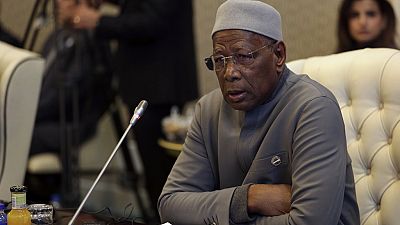

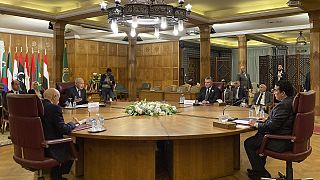
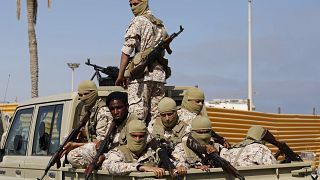
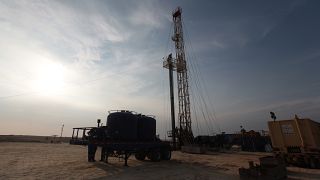
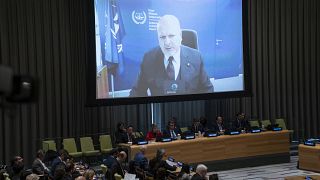
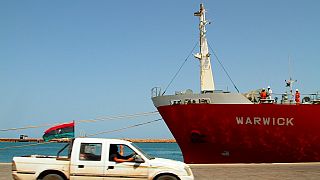

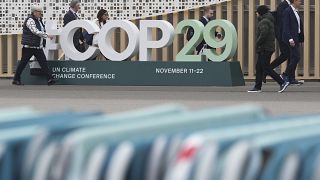
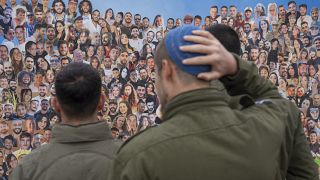
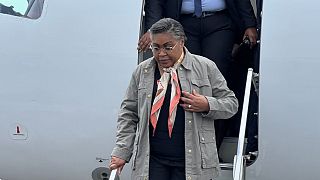
01:11
More aid workers have been killed in 2024 than in any other year, UN says
01:25
Negotiators race to reach deal as climate talks face deadlock
Go to video
2024: Deadliest year ever for aid workers amid global conflicts - UN says
Go to video
Russia vetoes UN resolution calling for immediate cease-fire in the war between Sudan's rival forces
02:09
Russia vetoes UN resolution calling for immediate cease-fire in Sudan
Go to video
Britain calls for UN action on Sudan, boosts humanitarian aid